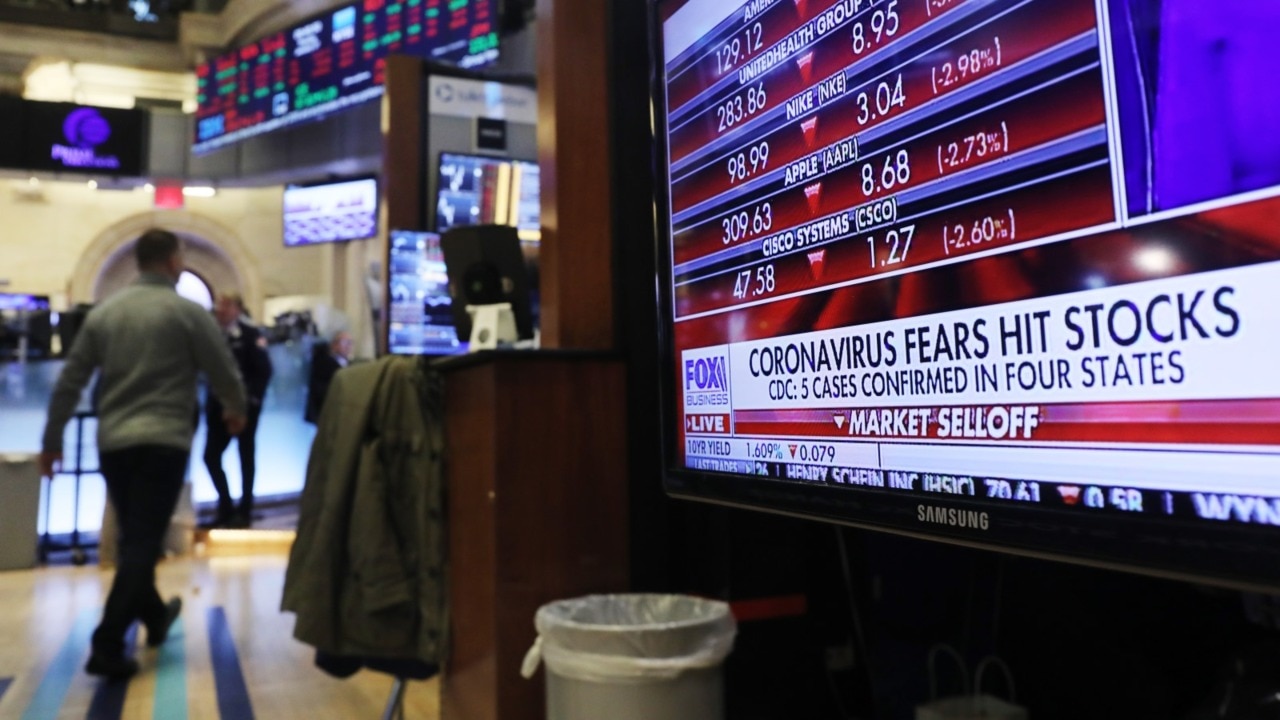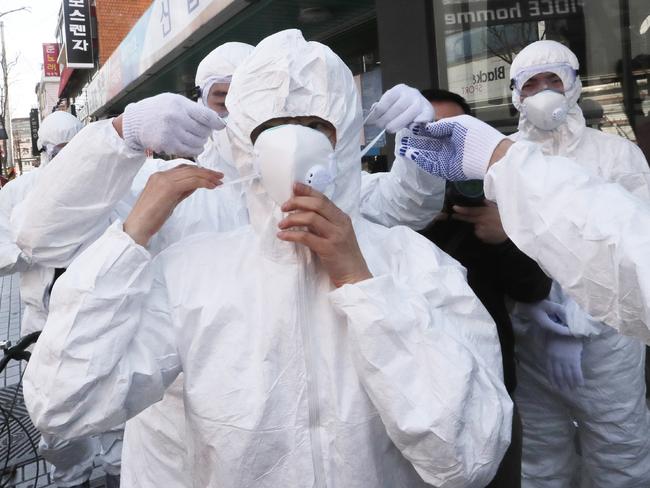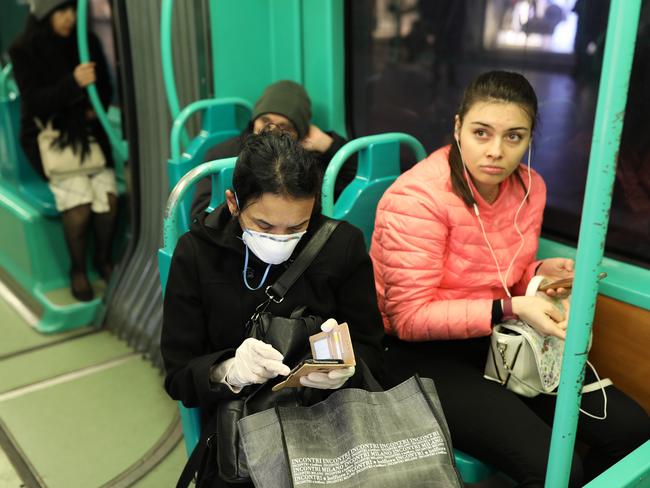Roger Montgomery: The virus damage could be immense — and not just to people’s health
As the prospect of a Covid-19 pandemic looms, markets are underestimating how people will respond, writes Roger Montgomery.

Business
Don't miss out on the headlines from Business. Followed categories will be added to My News.
Can you see how coronavirus can be contained? Let’s think practically about this, especially in light of the revelation the incubation period may be longer than two weeks and is infectious before symptoms present.
Even if Australia has banned inbound flights from China, many other countries have not. The virus will spread to those countries.
And attempts by those countries to enforce lockdowns as strictly as China are bound to fail — just ask the relaxed Italians!
Consequently, infected Chinese passengers can travel to other countries where people they come into contact with are permitted to travel to Australia.
Additionally, the limited infections being declared by Vietnam, Cambodia and Indonesia are suspicious and we aren’t banning travellers from those countries.
In the absence of a vaccine or warmer northern hemisphere temperatures slowing its spread, a Covid-19 pandemic is probable.

In countries outside China, including South Korea, Singapore, Japan and Italy, cases of infection are growing rapidly.
Meanwhile, China claims there are very few daily new cases outside the Hubei province, and in Indonesia there are no reported cases.
In other words, in the two countries with the some of the highest levels of corruption in the world, coronavirus is under control.
At the time of writing, Japan and Italy are posting sharp rises in infections.
The US Centres for Disease Control and Prevention raised its Japan travel alert to Level 2, warning of “sustained community transmission” and called for “precautions for high-risk travellers”.
Italy has declared a national emergency, having become host to the largest outbreak outside Asia and authorities are unable to find the source. Elsewhere, the death toll in Iran is rising, and Turkey and Pakistan have closed their borders.
For investors this issue may become more significant than has recently been implied by rather complacent markets.
Initially, the market was treating the outbreak as similar to the SARS coronavirus, which lasted three to four months.
Markets were instead hopeful low interest rates would support asset prices and central banks would continue to provide sufficient liquidity and stimulus to come to their rescue.
Even after their recent sell-off, the still high double-digit price-to-earnings ratios of major US and Australian indices have clearly ignored the possibility of a dramatic slowdown in global economic activity.
The issue is that markets are underestimating how people will behave, and the effect that behaviour can have on business. Brisbane-based travel company Flight Centre has lowered its full-year profit forecast by 18 per cent, suggesting it expects people’s travel plans will be severely curtailed.
And if a pandemic is declared, travel plans could take it another leg lower.
For investors, the obvious losers from a pandemic are businesses in travel and tourism as well as those in luxury retail that depend heavily Chinese spending.

Other stocks that suffer will be casinos that rely on Chinese high rollers and if the pandemic really gains traction, any business that relies on masses of people meeting together will suffer — think shopping centres, fast-food chains, sports stadium owners, and festival and concert operators.
As the global economy slows, so too does demand for energy and construction. Oil stocks suffer as the oil price slows and iron stocks do likewise.
Nike, having temporarily closed half of its company-owned and partner stores, and Apple which has issued profit warnings, are examples of how globalisation results in few companies emerging unscathed.
For serious investors, there are second and third-order consequences from an outbreak turning into a pandemic.
Retailers with high inventory turnover such as fast-fashion jewellery chain Lovisa in Australia — the company releases dozens and dozens of new products every week — will suffer as its supply chain empties of products even if its customers keep shopping.
Despite all of the above, what we are tracking really closely are credit spreads for signs that the credit market is starting to seize up.
If investors start worrying about lending to companies and interest rate spreads start to widen, the increased cost of funding could really spread the effects of the virus to everyone, causing markets to stumble.
Economies rely on people spending. If people stop spending, highly indebted companies — of which there are a record number globally — cannot afford the hiccup to their cash flows.
Coronavirus may yet turn out to be a storm in a teacup but the current signs suggest its becoming much more serious.
Roger Montgomery is chief investment officer at Montgomery Investment Management

